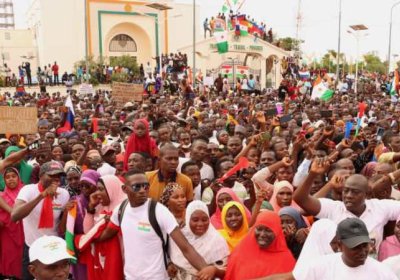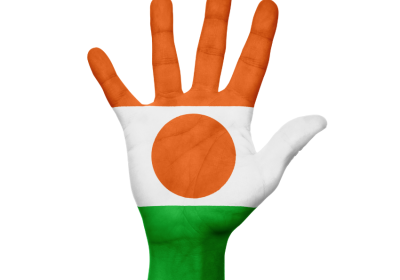Mali, then Burkina Faso, and finally Niger have experienced coups d’état and subsequently formed the Alliance of Sahel States (AES). What should we make of this new reality for West Africa? Paul Martial provides his analysis.
Niger
The leaders of the three main countries in Africa’s Sahel region — just south of the Sahara Desert — met in Niamey, Niger, to deepen their Alliance of Sahel States (AES), on July 6 and 7, writes Vijay Prashad.
France is refusing to withdraw its ambassador and troops from Niger, and reaffirming its threat of supporting foreign military intervention, reports Pavan Kulkarni.
Nigerian group, Socialist Labour, released a statement on August 1, in response to the coup in the neighbouring country of Niger and the threat of foreign military intervention including by Nigeria.
Vijay Prashad argues that the recent coups in West Africa represent “Colonel’s Coups” — coups of ordinary people who have no other options. That is why the coup in Niger is being defended in mass rallies from Niamey to the small, remote towns that border Libya.
The recent coup in Niger follows similar coups in Mali, Burkina Faso and Guinea, each led by military officers angered by the presence of French and United States troops and by the permanent economic crises inflicted on their countries, report Vijay Prashad and Kambale Musavuli.
The US Central Intelligence Agency’s drone program in Africa is expanding, the New York Times said on September 10.
Just south of the Libyan border, a covert military base in Dirkou, Niger has been deploying fleets of drones on surveillance missions for several months, a Defense Department spokeswoman, Major Sheryll Klinkel told the NYT.
Last October, four US soldiers — including two commandos —were killed in an ambush in Niger. Since then, talk of US special operations in Africa has centred on missions being curtailed and troop levels cut. But these claims are already being questioned, writes Nick Turse.
The military intervention that the United States political and Pentagon establishment never talked about is suddenly in the news after a joint patrol comprising 12 US troops and 30 Nigerien soldiers was attacked by a small group thought to be an ISIS affiliate known as ISIS in the Greater Sahara (ISIS-GS).
The incident itself was little mentioned until US President Donald Trump – after two weeks of silence on the matter – offended the family of soldier La David Johnson in a characteristically insensitive condolence call to his widow Myeshia Johnson.
The son of poor villagers in Niger, Bombino was set to come a long way to perform at WOMADelaide, the annual world music and dance festival held in Adelaide from March 6 to 9. His unique blend of desert blues and hardcore rock 'n' roll was sure to fire up this year’s main stage. Vanessa Powell spoke to the performer.










